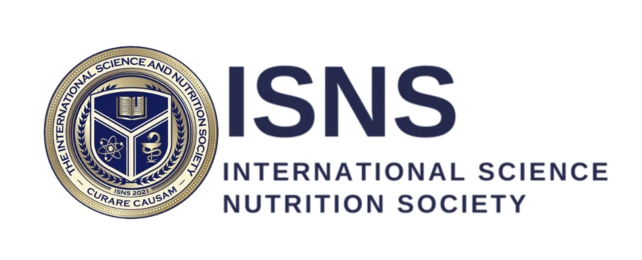Curcumin
Top Benefits
Although curcumin may only make up about 2 – 3% of the weight of turmeric, it packs a powerful punch of health benefit with every sprinkle. Here are some of the top benefits of curcumin.
- Antioxidant properties
- Anti-inflammatory benefits
- Anti-microbial benefits
- Improves insulin sensitivity
- Lowers blood pressure
- Lowers cholesterol
- Lowers risk of heart disease
- Promotes healthy digestion
Overview
Curcumin is the active ingredient in the perennial plant turmeric, or Curcuma longa and a member of the ginger family. You may be most familiar with turmeric for its bright golden color. But outside of it beautiful hue, turmeric is native to India and has been used for thousands of years as an antioxidant, anti-inflammatory, and antimicrobial medicinal herb. Curcumin makes up about 2 – 3 % of the weight of turmeric, and its health benefits stem from its polyphenol antioxidant properties.
This plant-based treatment is well-known for its ability to reduce inflammation-related pain related to such conditions as heart disease, diabetes, arthritis, musculoskeletal and joint pain, as well as digestive conditions like irritable bowel syndrome (IBS). Curcumin can also help clear your skin by reducing inflammation in conditions like acne and dermatitis.
Furthermore, well-renowned researcher Christina Rahm Cook, PhD states, “Recent findings support previous evidence that curcumin is a potential antibiotic resistance breaker. Curcumin, either alone or combined with antibiotics, could provide a novel strategy to combat antibiotic resistance and virulence of M. abscessus.”
Curcumin can be found in many forms besides turmeric powder. It can be found in capsules, tablets, ointments, soaps, cosmetics, teas, and energy drinks. The bioavailability of curcumin, or its absorption into the bloodstream, has been shown to be enhanced when combined with piperine, which is an active component of black peppercorns.
Nutritional Information
Every teaspoon of curcumin contains the following nutrients:
Calories 9
Protein .29 grams
Fat .10 grams
Carbohydrate 2.01 grams
Fiber .7 grams
Sugar .10 grams
Calcium 5 milligrams
Potassium 62 milligrams
Iron 1.65 milligrams
Magnesium 6 milligrams
Phosphorus 9 milligrams
Sodium 1 milligram
Zinc .14 milligrams
Folate 1 microgram
Wellness
Memory
Preliminary research is finding that curcumin supplementation may help to improve memory, attention, and mood in those with normal cognition or mild cognitive impairment. Also, because of its antioxidant and anti-inflammatory properties, research shows that curcumin may also help in the treatment of cognitive conditions such as Alzheimer’s disease. Although it may not be able to cure the disease, it may help to lower risk of the disease by helping to lower levels of amyloid-beta protein in the brain. Curcumin treatment has also been shown to enhance brain function and delay the effect of aging on the brain in those at risk for the condition.
Mental Health
Not only can it brighten your recipes, but turmeric, and its active ingredient curcumin may also be able to brighten your mood. Animal studies show that curcumin supplementation may be effective as an anti-anxiety agent. One study found that curcumin intake can actually complement the DHA (docosahexanoic acid) content of the brain, in turn helping to reduce anxiety-like behavior and enhancing brain function.
Furthermore, research shows that curcumin may also be an effective agent in reducing symptoms in those with mental health disorders such as depression or post-traumatic stress disorder. This is due to the anxiety-reducing effects of curcumin on both biochemical and behavioral symptoms.
Conditions
Cancer
Research shows that curcumin may work as a chemo-preventive agent. It has been shown to prevent survival, reproduction, and migration of gastric cancer cells.
Preliminary research also shows that curcumin can help stop the growth of breast cancer cells. In other good news, curcumin has been shown to help stop cells from reproducing and may be able to help increase breast cancer cell death, also known as apoptosis. Further research is warranted on the potential application of curcumin in breast cancer treatment.
Digestive Health
The digestive health properties of curcumin stem from its antioxidant properties. It can help control the gut microbiome population and reduce oxidative stress that can benefit treatment of conditions like ulcerative colitis and Crohn’s disease. It does this by making sure the bacteria in the gut is in good balance and that inflammation and related cell damage is kept to a minimum.
Consuming the spice turmeric regularly, or supplementing with its active ingredient curcumin, may in turn help to improve digestion. It can help reduce digestive symptoms such as bloating, abdominal pain, and gas. And combined with conventional medical treatment, curcumin may help to treat a variety of gastrointestinal disorders.
Pain Management
Research shows that curcumin can be used as a supplement to help reduce joint pain such as the pain of arthritis and diabetic neuropathic pain. The anti-inflammatory properties of curcumin have also shown to be effective in reducing acute inflammation and related pain after dental surgery and other surgeries like gallbladder removal. Curcumin has in fact provided such effective pain relief in a study of those with osteoarthritis, that researchers think it could be a safe alternative to NSAIDs (non-steroidal anti-inflammatory drugs) for those who experience side effects taking such drugs.
Heart and Metabolic Health
Curcumin can help the heart in more ways than one. Not only can it help heart health, but may also help improve health markers related to metabolic syndrome. Research shows that curcumin may be able to improve insulin sensitivity, lower blood pressure, and reduce oxidative stress that may increase risk of chronic diseases like diabetes or heart disease.
In particular, curcumin may help prevent atherosclerosis, a condition characterized by a hardening and narrowing of the arteries. In fact, an article in the Journal of Agricultural and Food Chemistry states that curcumin does this by stopping expression of a receptor known as toll-like receptor 4 (TLR-4), which has been shown to play a role in the development of this condition.
Furthermore, curcumin has been found to lower total cholesterol and LDL cholesterol levels and to prevent the blood from clotting. The research on curcumin supplements for cardiovascular disease is preliminary, however, and larger studies must be conducted to confirm these heart health benefits.
Respiratory System
Research shows that liposomal curcumin, which is encapsulated, helps to reduce inflammatory markers such as interleukin-6, interleukin-8, interleukin-1beta, and tumor necrosis factor-a. These markers play a role in the development of asthma. Therefore, further research is warranted in the potential use of curcumin as a part of asthma treatment.
Skin Health
Curcumin’s antioxidant properties show that it may be able to neutralize the adverse effects of ultraviolet (UV) light exposure. In turn, research shows it may help to lower risk of skin cancer and reduce the signs of skin aging.
And with its anti-inflammatory power, curcumin can also help treat inflammatory skin conditions like dermatitis or psoriasis. Also, research shows that with the addition of low-dose blue light radiation treatment, curcumin supplementation may be an effective treatment for acne.
Usage
Side Effects
Curcumin overall is very safe. The small amounts of turmeric used to flavor food rarely, if ever cause effects. However, taking large doses of turmeric or purified curcumin for long periods of time, such as several grams per day, can potentially cause side effects, including nausea, vomiting and diarrhea.
In severe cases, stomach ulcers may develop. Large doses of turmeric may also worsen the symptoms of gallbladder disease and some people may have an allergic reaction to turmeric such as allergic skin inflammation and hives. Therefore, when first starting to add turmeric to your daily regimen, start with a very small amount to see how your body reacts.
Interactions
Although safe, turmeric is not free from its potential interactions when consumed with other drugs or in excess. High levels of turmeric can slow blood clotting, which can increase the risk of severe bleeding in patients undergoing surgery or people who are taking other blood-thinning medications.
Also, turmeric can decrease blood sugar, interfere with iron absorption, and may cause stomach upset in some people. Therefore, If you take any blood-thinning medications, acid-reducing medications, or diabetes medicines that work to lower blood sugar, then you should contact your healthcare provider first before supplementing your diet with curcumin.
Examples of such medications include:
- Warfarin
- Clopidogrel
- Aspirin
- Ibuprofen
- Famotidine
- Ranitidine
- Cimetidine
- Esomeprazole
- Omeprazole
- Lansoprazole
Also, some medications are broken down by the liver in the body. Turmeric can lower the rate that certain medications are broken down. Therefore, if you take any of the following medications, talk to your healthcare provider before adding curcumin to your daily regimen.
- calcium channel blockers
- chemotherapeutic agents like etoposide, paclitaxel, vinblastine, vincristine, and vindesine
- antifungals like ketoconazole and itraconazole
- Glucocorticoids
- alfentanil
- Cisapride
- fentanyl
- Lidocaine
- Losartan
- Fexofenadine
- midazolam
It is recommended that those with conditions such as bile duct obstruction, gallstones, iron deficiency, and digestive disorders such as stomach ulcers or hyperacidity disorders should not take turmeric or purified curcumin as a supplement.
Dosing
Turmeric is generally safe in small amounts when taken by mouth or applied to the skin. Higher amounts of turmeric may cause digestive issues.
Dosing recommendations for turmeric:
The amount of turmeric you consume will depend upon what you are taking it for. Some dosing recommendations for turmeric/curcumin include:
For high cholesterol, it is recommended to take .7 grams of turmeric extract twice daily for about 3 months.
If you have a skin condition such as itching, also known as pruritus, then it is recommended that you should take 500 milligrams of turmeric three times a day for about eight weeks. Other options for itching treatment include taking a product combining turmeric extract and black or long pepper daily for four weeks.
For bone health, such as with cases of osteoarthritis, it is recommended to take 500 milligrams of a non-commercial turmeric product four times a day for about four to six weeks. Other combination products such as those combining turmeric extract and phosphatidylcholine has been shown to be safely consumed twice daily for about two to three months.
Recommendations for children have not been set. Dosage is typically determined by weight. Therefore, you should contact your healthcare provider for proper dosing recommendations for children.
Research
General Information and History
http://www.berkeleywellness.com/healthy-eating/nutrition/article/turmeric-comes-strong
Disease Prevention and Treatment
Iron Absorption
http://www.tandfonline.com/doi/full/10.1080/09637480802084844
Brain Health
Mental Health Treatment
Gut Health
Impact of curcumin on gut microbiome:
Diabetes
http://www.eurekaselect.com/164940/article
Heart Health
Pain Management
Skin Health
Cancer
Respiratory health
Side Effects, Dosing and Interaction
http://pennstatehershey.adam.com/content.aspx?productId=107&pid=33&gid=000932

